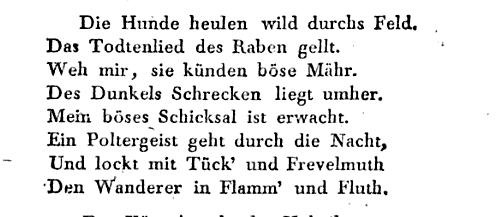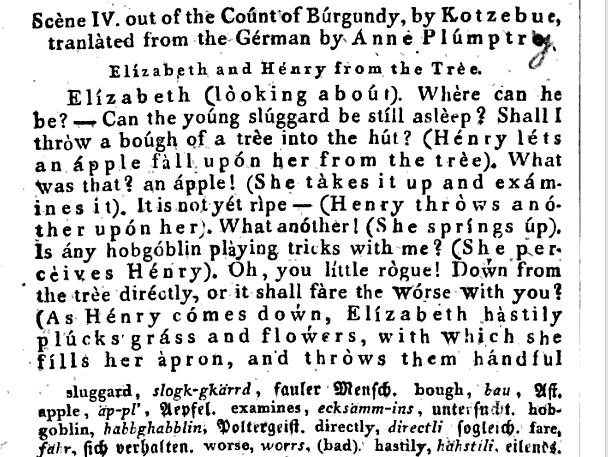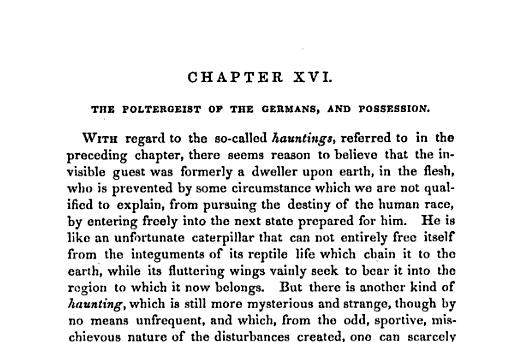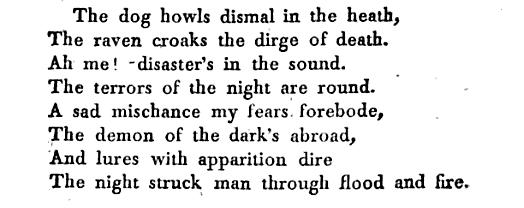The Word Poltergeist in English December 2, 2015
Author: Beach Combing | in : Modern , trackbackWhen did English-speakers start using the word Poltergeist? The conventional answer to this question is in 1848 when Catharine Crowe wrote, in her The Night Side of Nature, the following passage while describing spirits of the dead.
[B]ut there is nothing sportive or mischievous, nor, except where an injunction is disobeyed, or a request refused, are there generally any evidences of anger or malignity. But in other cases alluded to, the annoyances appear rather like the tricks of a mischievous imp. I refer to what the Germans call the Poltergeist, or racketing spectre, for the phenomenon is known in all countries and has been known in all ages (II, 232).
Her chapter title heads this piece. Crowe had established a useful new category for English writers on the supernatural – and how many there would be in the next fifty years – a force that was not necessarily connected with life and death. Quite what these poltergeists were, CC leaves open, though she describes them as having an intelligence. Most writers would say that Crowe had categorized ghosts. It is perhaps more accurate to say that she had amalgamated a form traditionally associated with fairylore through much of the island with the undead: using a German word to do so.
Crowe seems to deserve the credit for using poltergeist first in a major publication. But the word was ‘around’ and is there in other publications. In 1834 it is used in Blackie’s note on Faust by Goethe: crucially there is a German music piece called Poltergeister that was sometimes performed in Britain. In 1843 the word is used casually in an article in the Domestic and Foreign Review for a diabolical spirit. In 1850 it appears in a publication in Harpers New Monthly. In 1859 it appears in Chambers Domestic Annals of Scotland. It is only by the 1870s that the word seems though to have become properly naturalized into English.
Beach cannot resist showing some early translations from English into German using poltergeist. The ‘hobgoblin’ text is an English reading book from 1818. The ‘demon’ from 1800. They are a reminder that the category created in English was convenient but not inevitable. These German texts suggest much more latitude, something like ‘sprite’.


22 Dec 2015: Bruce T writes on poltergeists: My guess, and it’s just a guess, is that poltergeist began to enter American English in permanent way with the works of both Freud and Jung becoming popular here in the 20’s. The mass migration of German speaking intellectuals fleeing the Nazi’s in the 30’s probably cemented the process. A little known fact outside of the US about the Blue Ridge Mountain region is that it was heavily settled by Germans in the mid 1700’s. From Pennsylvania to North Carolina until the early 1900’s, the first language in many of these more insular communities was German. It wouldn’t shock me if poltergeist goes back much further there. However, “haint” would have been the likely common usage among the native born English speakers in this region for the phenomena during the period before the 1920’s-30’s. I say this as my Grandmother hailed from that region, and “haint” was the only term I heard people of her age and older using for the phenomena in that area of Virginia.




